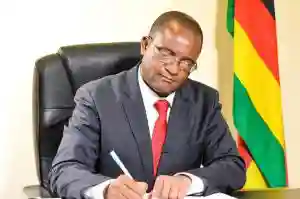MDC-T leader Douglas Mwonzora on Wednesday said political and electoral reforms in the country will only come through dialogue, not confrontation.
Mwonzora said ZANU PF has a huge majority in Parliament, therefore, political parties should come to the negotiating table to discuss ways to move the country forward.
Addressing journalists at the Bulawayo Media Centre on Wednesday, Mwonzora said:
Our position as a party is that we cannot avoid dialogue in order to achieve key reforms.
The reality we have to live with is that ZANU PF enjoys a supermajority in Parliament, and they have been the majority since 2013.
If we are to go via dialogue, it means that we agree and what we would have agreed will then be processed through Parliament.
If we are to amend the Electoral Act, for example, we need to agree and cooperate with legislators from across the political spectrum.
Mwonzora said in the history of Zimbabwe, key political reforms have come through dialogue and he cited the Lancaster House agreement of 1979 which brought about the majority rule in the country and the 1987 Unity Accord which brought an end to Gukurahundi. He said:
This is what happened throughout the history of the country. In 1979, the issue of majority rule was a key political reform, and it came via dialogue.
The disturbances in Matabeleland after independence were stopped via dialogue which led to the signing of the Unity Accord between the warring parties.
People can argue about the content of the Unity Accord itself and whether one party won more than the other, but that is beside the point at this point and time.
The fact of the matter is that the Accord came via dialogue.
Mwonzora also cited the talks between ZANU PF and the two MDC formations facilitated by SADC in 2008 which culminated in the signing of the Global Political Agreement (GPA) and the formation of the Government of Unity (GNU) in 2009. | New Ziana

